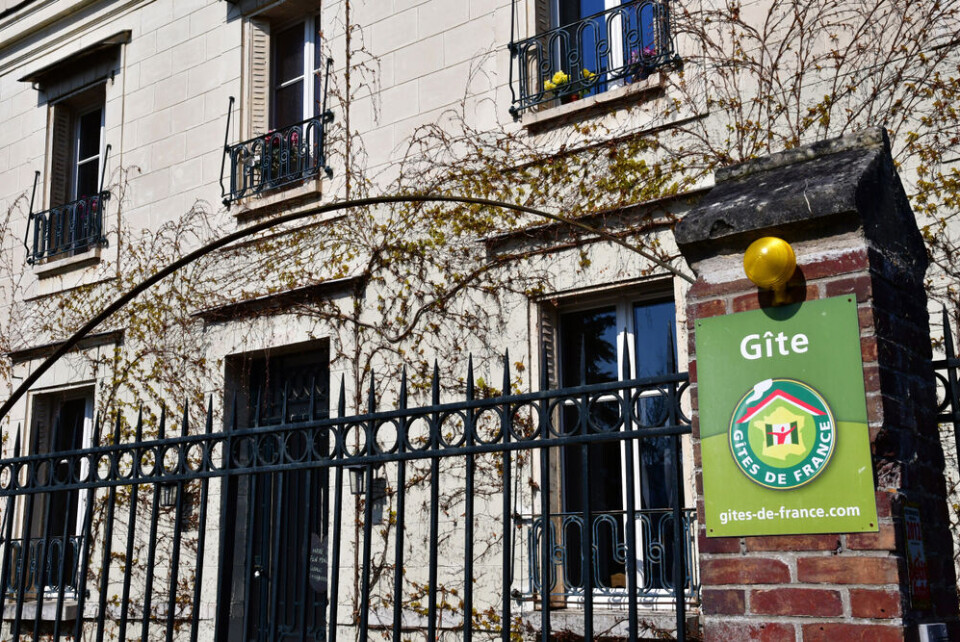-
France's 2026 budget: how new plans could affect residents
Cuts to public and administrative spending, home renovation aids, and pensions are all on government’s horizon
-
Official tool lets you see how much French income tax others in your commune pay
Data shows huge variations in average tax bills from Paris and the Riviera to rural areas
-
Key points to remember in your French income tax declaration
Checking pre-filled information is important to ensure you pay correct amount of tax
Many gite owners in France forced into complex and costly tax regime
Some say the new finance law was rushed through and ‘accidently’ penalises gites

A drastic change in taxation rules affecting furnished holiday lets has been enacted as part of this year’s finance law – but there is speculation that it was made in error.
One reader says that, as a result, she is giving up letting gites.
Several French media claim MPs ‘accidentally’ retained an amendment on the subject in the rush to pass the finance law.
Read more: Confusion over French holiday lets after tax rules tightened in error
Affects expense deductions and paperwork
The law, as it stands, affects all short-term holiday letting where owners opt for the simple micro-Bic tax system, as opposed to the more complex réel system.
The latter involves claiming ‘real’ expenses, with proof, whereas the micro system allows for generous fixed-rate expense deductions of 50% within a turnover ceiling of €72,600 for ordinary holiday lets.
This rises to 71% within a turnover of €176,200 for lets ‘classified’ under the star-rating system.
The new law, however, reduces the turnover ceiling to €15,000 and the expense deduction to 30% (51% in the case of ‘classified’ lets in areas not deemed to be subject to housing pressures).
It essentially reduces the benefit to the same level as the micro-foncier for unfurnished long-term rentals.
Read more: Ending tax breaks for French gites could ease housing crisis
Possible U-turn in spring
Economy Ministry sources have reportedly stated that an internal tax circular is expected allowing people to benefit from the previous rules for 2023 income, to be declared this spring, which would otherwise be affected. This has yet to be confirmed.
Chambres d’hôtes are not affected by the changes and are eligible for the 71% rate.
‘I’m giving up my gite business because of the new law’
Maggie Clarke, who has provided tourist accommodation in Le Touquet for 28 years, believes the measure is part of a wider ‘anti-Airbnb’ sentiment at national and local government level.
“They seem to think holiday letting is bad because we are taking away year-round properties from the local population, but it is not true in Le Touquet, which lives almost entirely on tourism,” she said.
Read more: Paris joins Nice, Lille and other cities crackdown on ‘key boxes’
As a result of the new law, she has given up renting a gite flat in her villa, which she also runs as a chambre d’hôtes, and is selling a separate gite.
She said it is likely other owners will reconsider their business model, or raise gite prices.
“If there are fewer gites, or more expensive ones, it is likely to make self-catering travel with children much harder,” she said.
“There are some people who let out their second homes on platforms such as Airbnb while they are not there, to cover costs, but these changes also penalise people such as myself with registered businesses and paying social charges, as well as professional letters with villas or blocks of flats turned over completely to holiday rental.
“On the réel, I would have higher accounting costs and have to collect every receipt.”
She said over the years the rules surrounding chambres d’hôtes and letting have become progressively more complicated.
We note that in a further complication, France's MPs have been debating a proposed law - originally submitted last year - which also seeks to change the rules around letting of furnished property. We will be looking into the significance of this in a later article.
Related articles
South of France tourist town to strictly limit short-term lets
Can I use Airbnb as proof of residence for official French procedures?
Is DPE energy certificate needed for property used for Airbnb rentals?
























